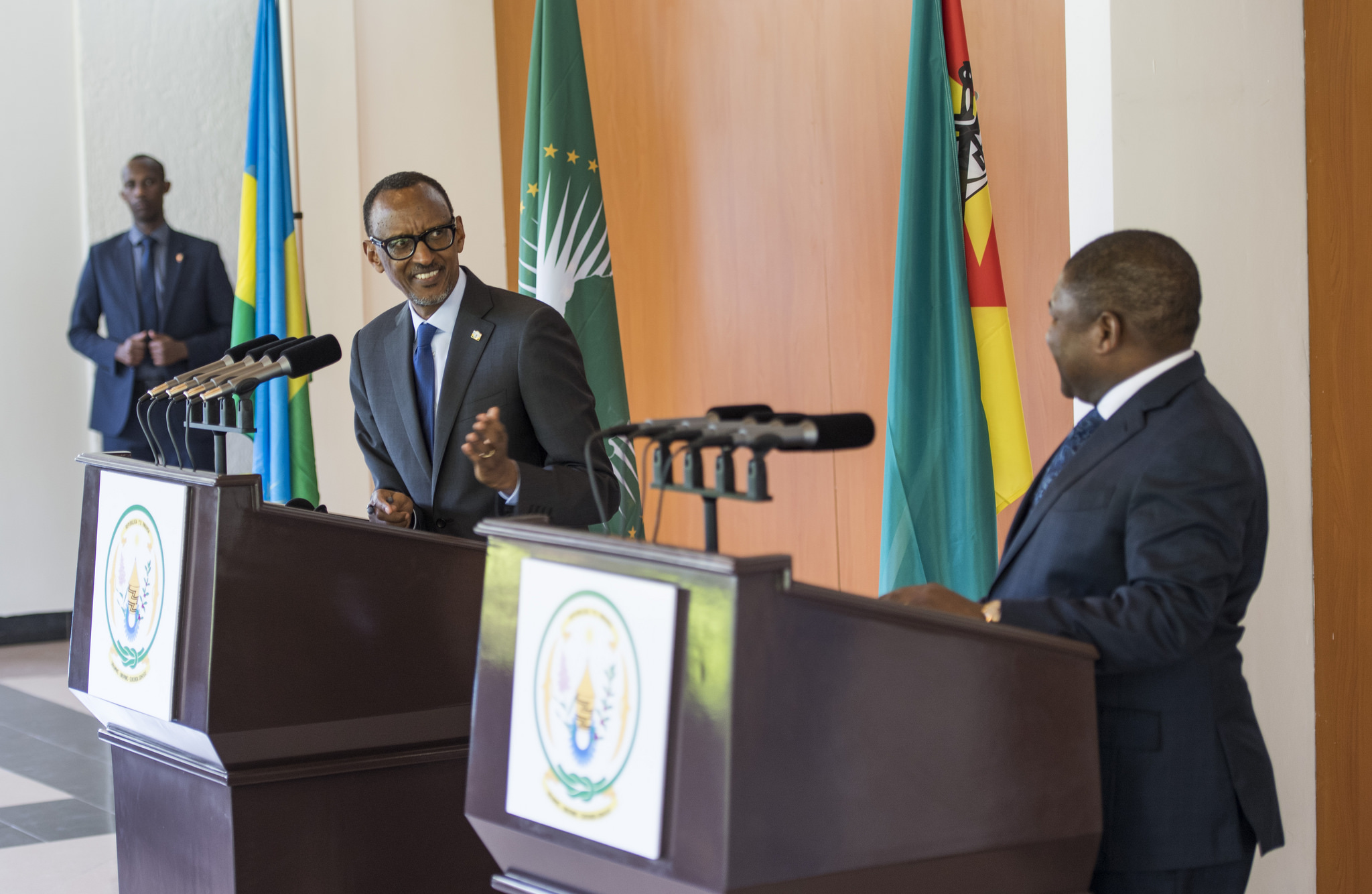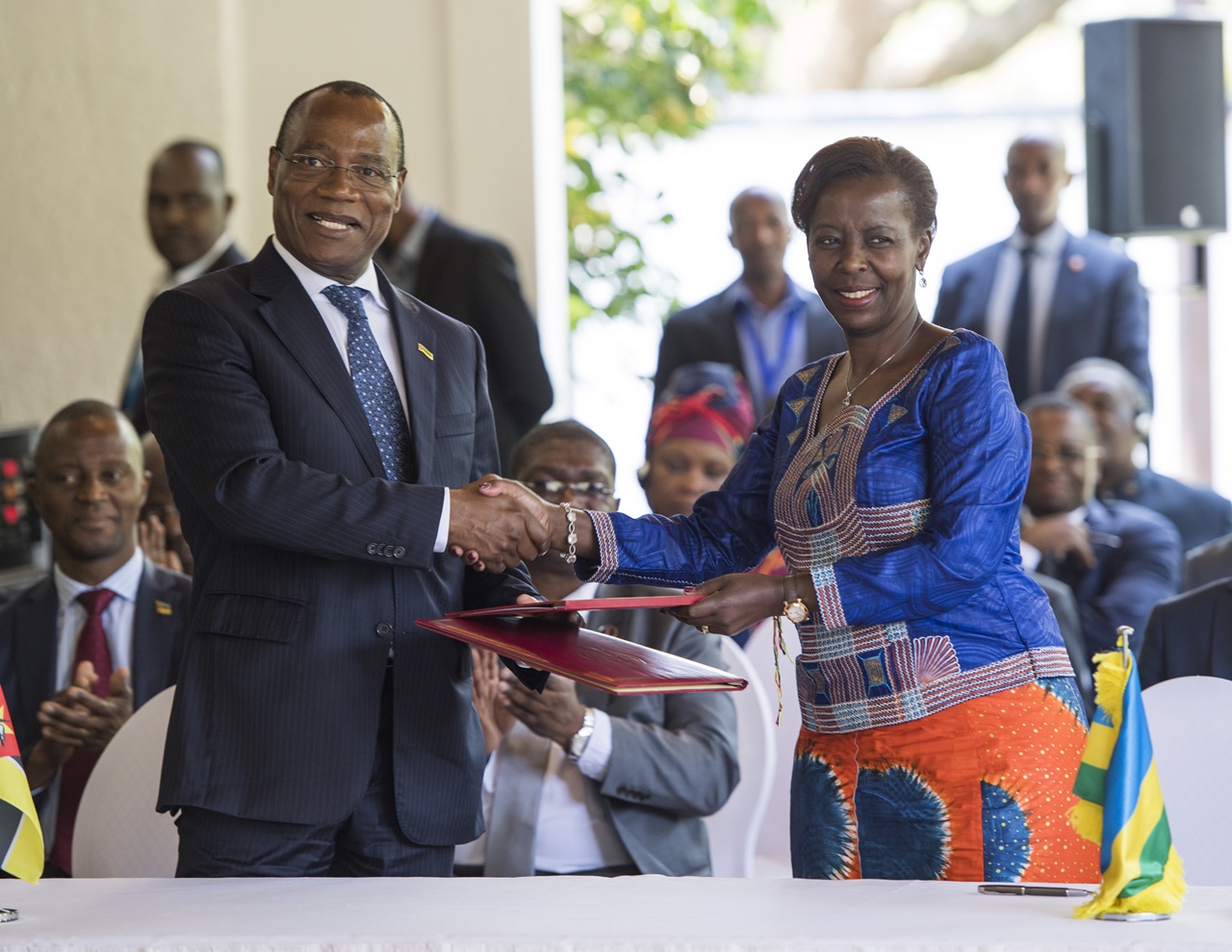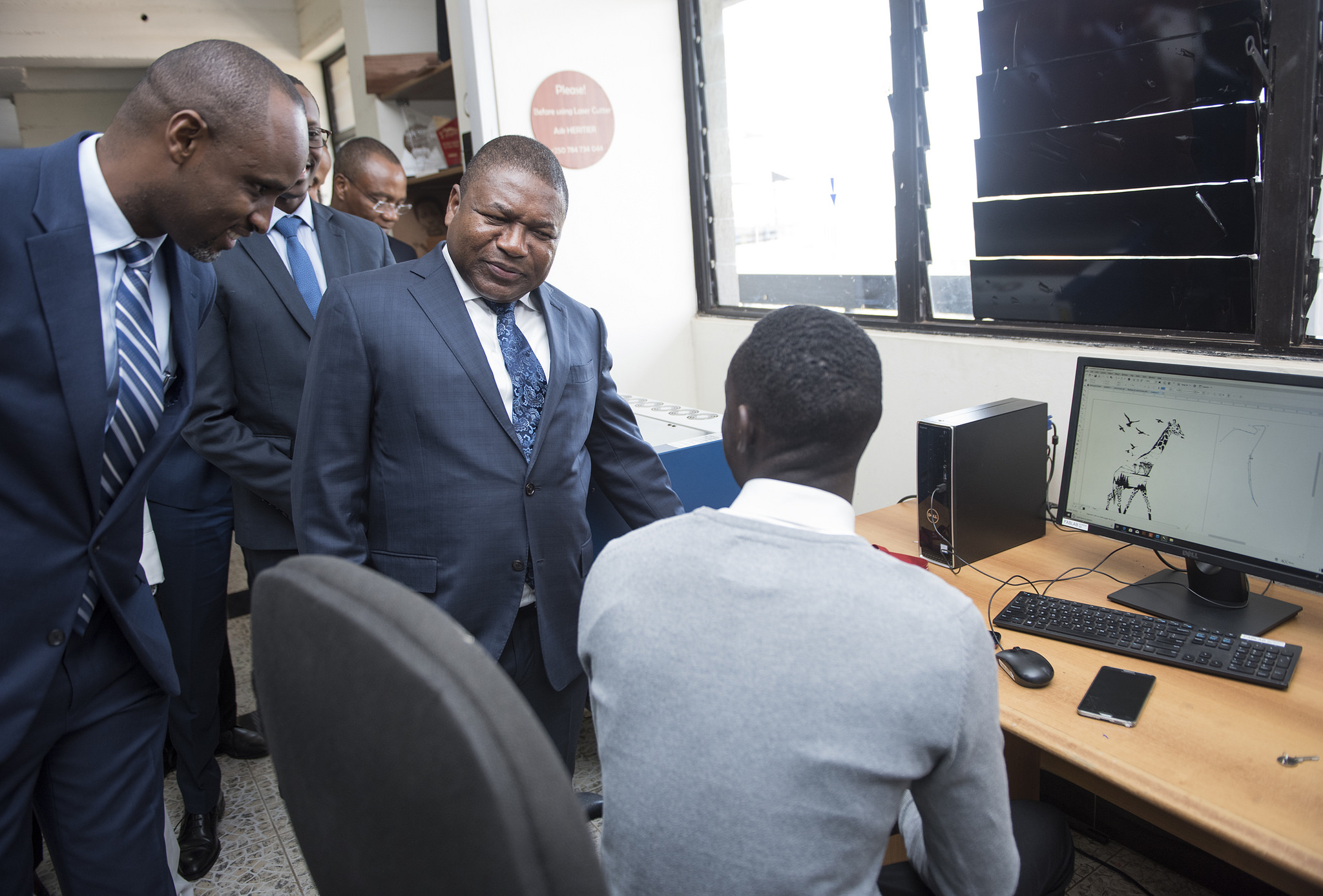Rwanda’s President Paul Kagame and his Mozambican counterpart Filipe
Nyusi have witnessed the signing of five agreements that will help business
flow and exchange of knowledge between both countries.Signed in Kigali on the
second day of President Nyusi’s visit to Rwanda on Friday, the agreements
include bilateral cooperation agreement which in near future will include,
opening embassies in respective countries.President Kagame already announced
Rwanda’s plan to open the embassy in Maputo.Another agreement that was signed
is the visa requirement which exempts visa fee for diplomats from both
countries.
 They also signed bilateral air service agreement which will allow
national carriers of Rwanda and Mozambique to fly to either country.
They also signed bilateral air service agreement which will allow
national carriers of Rwanda and Mozambique to fly to either country.
The list also includes a Memorandum of Understanding between Rwanda
Development Board (RDB) and the Mozambican Investment Agency to further trade
between both countries.Both countries signed agreement to exchange Science and
technology, education and professional training.The Heads of State addressed a joint press conference where they agreed
to deepen trade and diplomatic cooperation.
“We have defined some areas that are key for either country including;
energy, tourism, and infrastructure. For us (Mozambique), we have sugar, tea
among others, but this country also has a lot to share especially the
technology,” President Nyusi said.Louise Mushikiwabo and her Mozambican
counterpart after signing cooperation agreementThe media was eager to ask the
input of Nyusi’s visit in the bilateral relationship of Rwanda and Mozambique,
but the answer from President Kagame was straightforward.
“My experience with President
Nyusi…he is one man who is always asking about the time. Well, bureaucracy can
sometimes delay things but I don’t see much business taking place as usual,”
Kagame said.President Nyusi also complemented while saying that both Presidents
are not that kind of people who meet for mere talks.President Nyusi will visit
several activities in the country, ranging from culture with a visit of king
palace museum in Nyanza – Southern Province and La Chroniche, the border post
between Rwanda and Democratic Republic of Congo in Western province.
However, he
already visited the Kigali special economic zone, the Kigali Genocide memorial
and technology centers including KLab, a forum of local App developers and
Olleh Rwanda which provides 4G Internet.Through these tours, President Nyusi
noticed something which helped him to answer a journalist who asked him what
Rwanda is offering to Mozambique in this cooperation.“This capacity of Rwandans
to reconcile after the genocide tragedy that happened here, is a big lesson to
us,” Nyusi said.
“Wherever you go in Rwanda, you see a very young generation which is
transforming knowledge into wealth, yet the culture of hard work is key to
transformation.”President Kagame also confirmed this reconciliation as an
enabler of progress in Rwanda.“Reconciliation is work in progress. There is no
time when we can call a deadline but as we address the economic, social issues,
we also make our citizen understand the good in working together, that
countries do not work like in pocket, but work together,” He said.The Heads of
State pledged to deepen trade and diplomatic relations and to transcend
challenges that are brought to the continent by external players, in the
benefit, not only of Mozambique and Rwanda, but also the continent as a whole.President
Nyusi said “This is a very clean city where traffic rules are respected, there
are no crimes. I am not saying this to mean that because our country has
crimes.”





